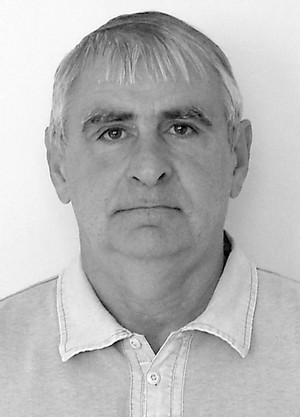Perfection of vocationally essential intellectual qualities by means of physical culture and sport
Фотографии:
ˑ:
Perfection of vocationally essential intellectual qualities by means of physical culture and sport
V.N. Trofimov, associate professor, Ph.D.
O.V. Shinkarenko, associate professor, Ph.D.
Samara state technical university, Samara
Key words: students, vocational training, intellectual qualities, physical education, technique, pedagogical experiment, fitness.
The purpose of the present paper was theoretical substantiation of the role of means of physical culture and sport in perfection of key intellectual qualities.
Effectiveness of personal education is determined by its inner need for development and perfection. The problem of correlation of education and development takes a special place in pedagogics. L.G. Vygotsky supposed that education results in development. It makes corresponding requirements to organization of the educational process promoting allocation and revelation of individual potentials as a condition of mastering of educational values: the use of student's personal experience in the sphere of physical culture and sport.
One of key conditions of effectiveness of the process of physical education is realization of itsinformation-cognitive direction, stimulating perfection of themain intellectual qualities by profound apprehension of educative activity.
The results of the pedagogical experiment shown that physical culture and sports have great opportunities for physical and intellectual development and perfection of university graduates - young experts meant to modernize production sector and other branches.
The attitude of students to educational classes of physical education in the university is determined by the quality of its organization, contents, correspondence to interests, requirements, needs and individual features of future experts. Means of physical culture and sport promote effective perfection of thinking - the key intellectual quality and other personal traits in case of classes directed to realization of the quoted task.
Bibliography
1. Balsevich, V.K. Social role of physical culture and sport in modern conditions of developmentof Russia /V.K. Balsevich /Teoriya i praktika fizicheskoy kultury. – 2001. – № 1. – P. 50–56. (In Russian)
2. Vilensky, M.Ya. Student as a subject of physical culture /M.Ya. Vilensky // Teoriya i praktika fizicheskoy kultury. – 1999. – № 10. – P. 2–5. (In Russian)
3. Vygotsky, L.S. Development of higher mental functions / L.G. Vygotsky. – Мoscow: APS. RSFSR, 1960. – 500 P. (In Russian)
4. Gorokhova, E.A. Work of the model of modern expert training /E.A. Gorokhova // Quality of education: formation of expert personality as a citizen and professional: book of abstracts by Proceedings of Republic scient.-pract. conf. In 5 parts. P. II: section of economic disciplines. – Мoscow: Ioshkar Ola: MFMOSU, 2007. – P. 13–20. (In Russian)
5. Lubysheva, L.I. Ten lectures on sociology of physical culture and sport /L.I. Lubysheva. – Мoscow: Teoriya i praktika fizicheskoy kultury, 2000. – 151 P. (In Russian)
6. Murtazin, Sh.N. Training for vocational-pedagogical activity of future experts in physical culture and sport /Sh.N. Murtazin // Teoriya i praktika fizicheskoy kultury i sporta. – 2008. – № 9. – P. 80. (In Russian)



 Журнал "THEORY AND PRACTICE
Журнал "THEORY AND PRACTICE